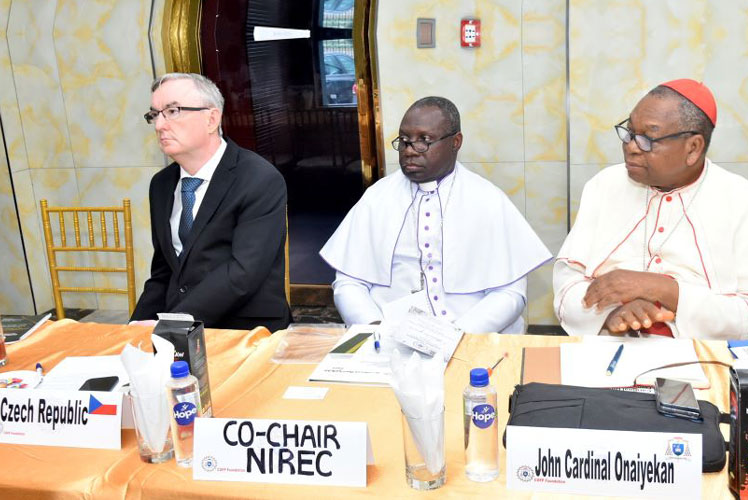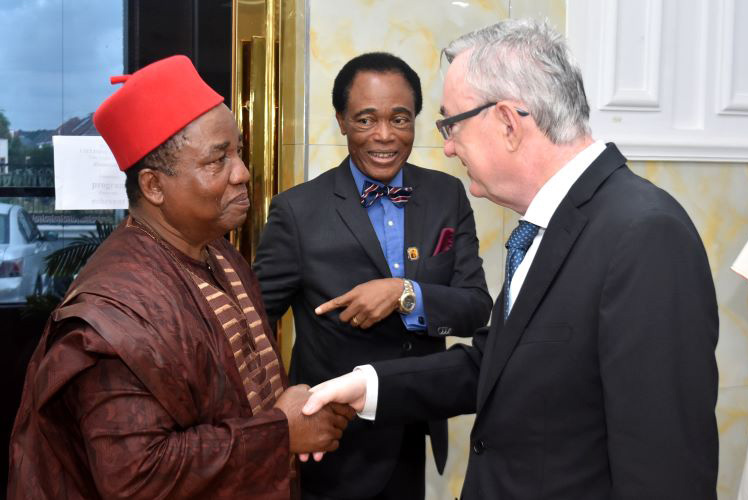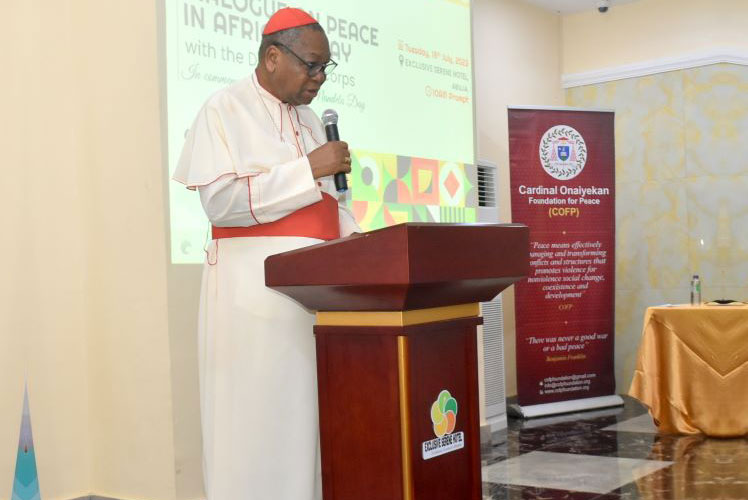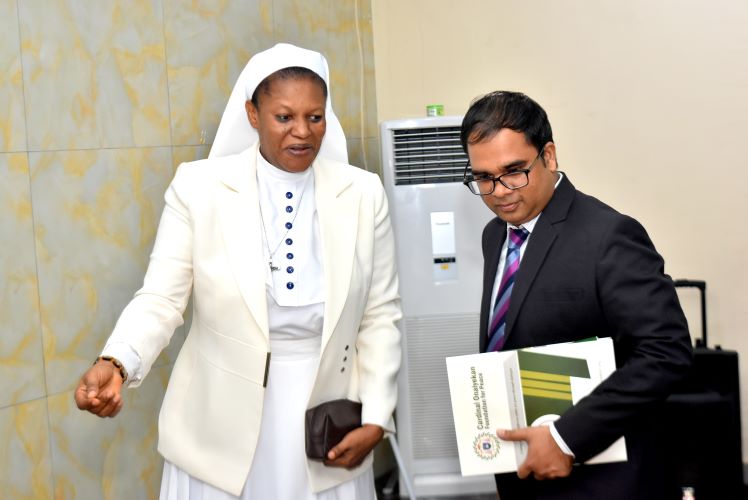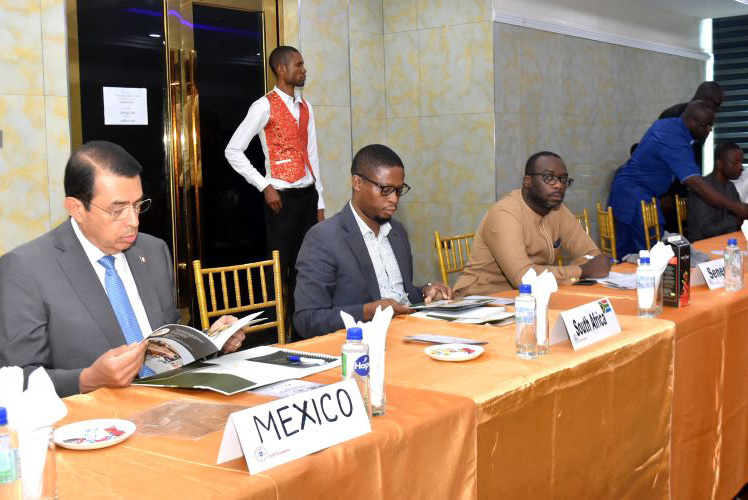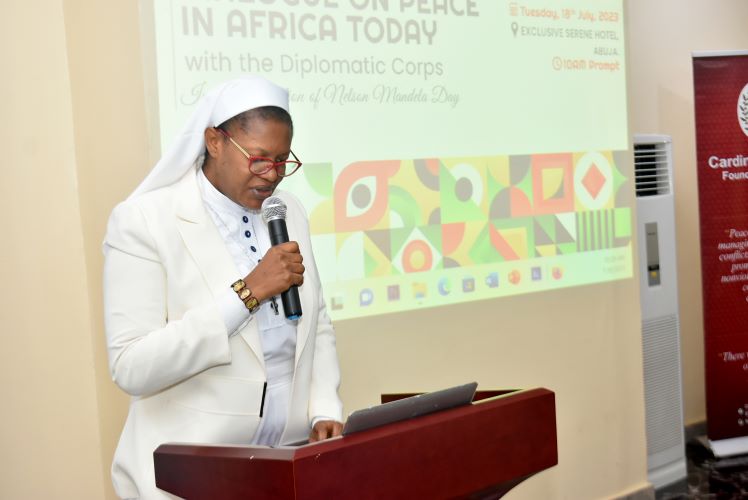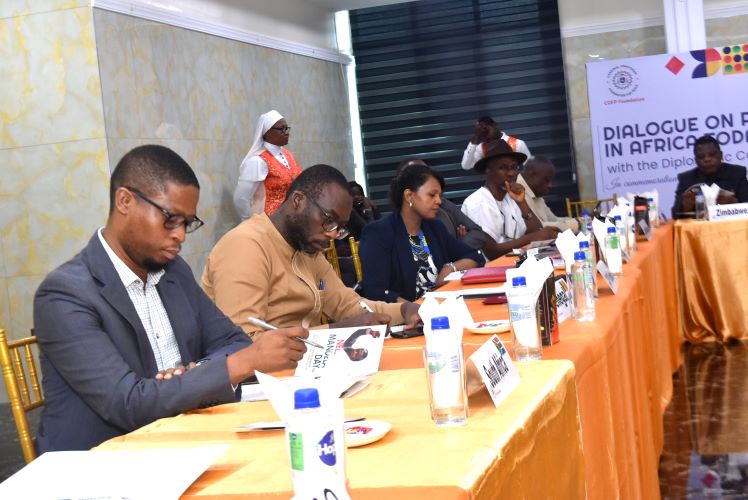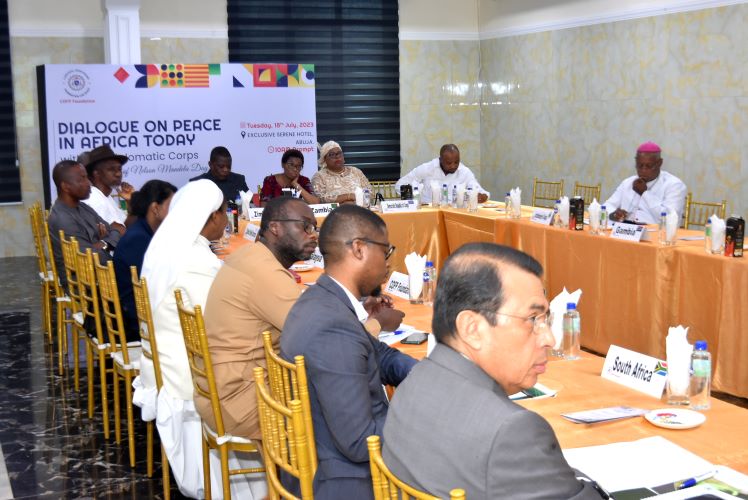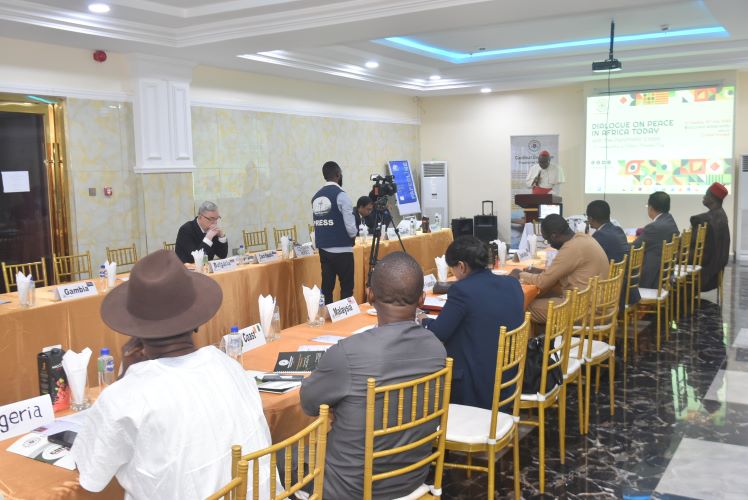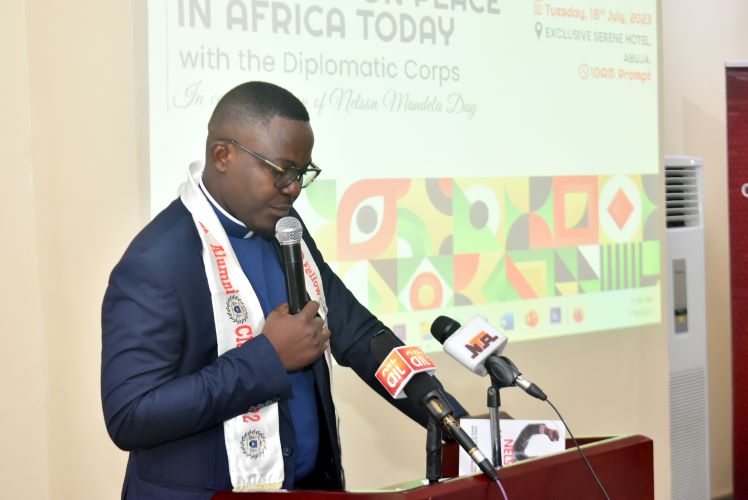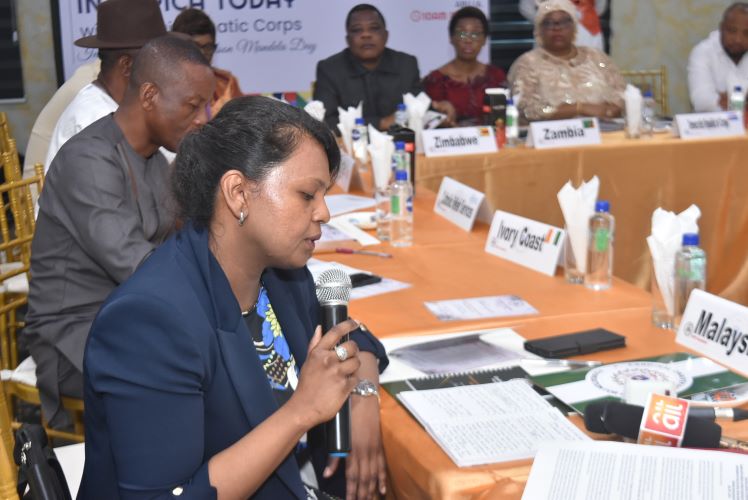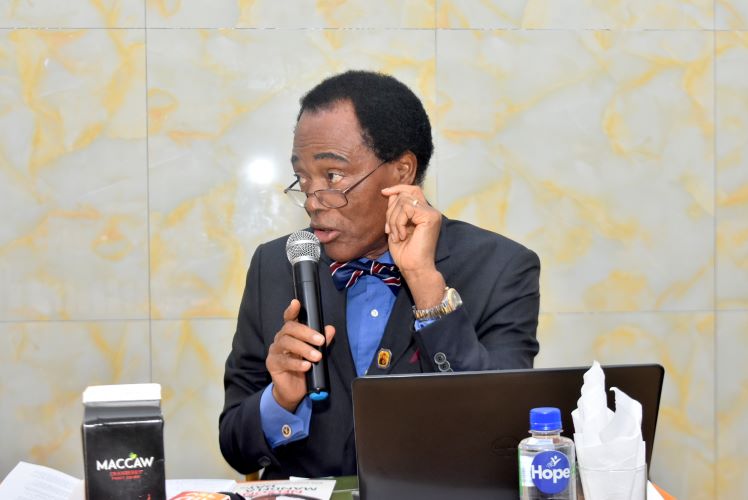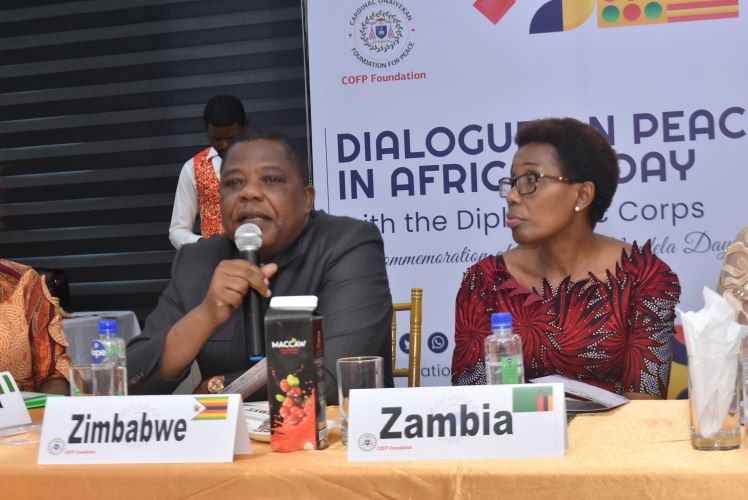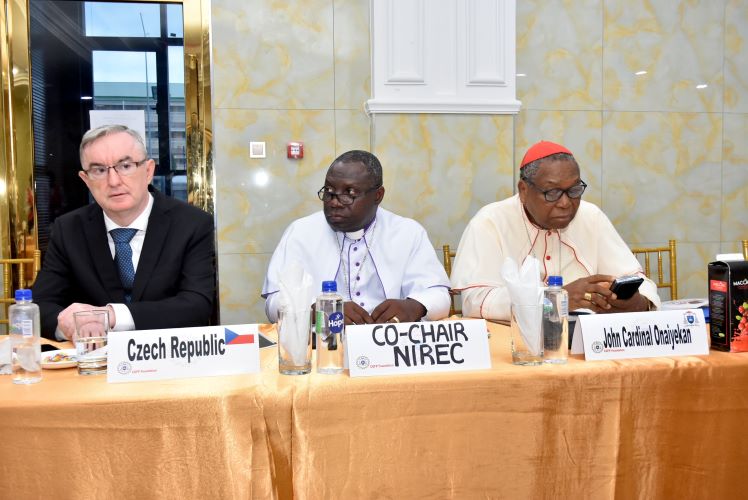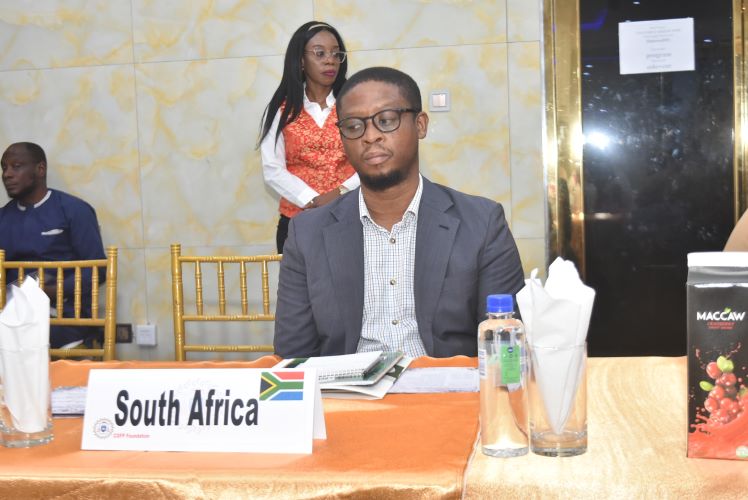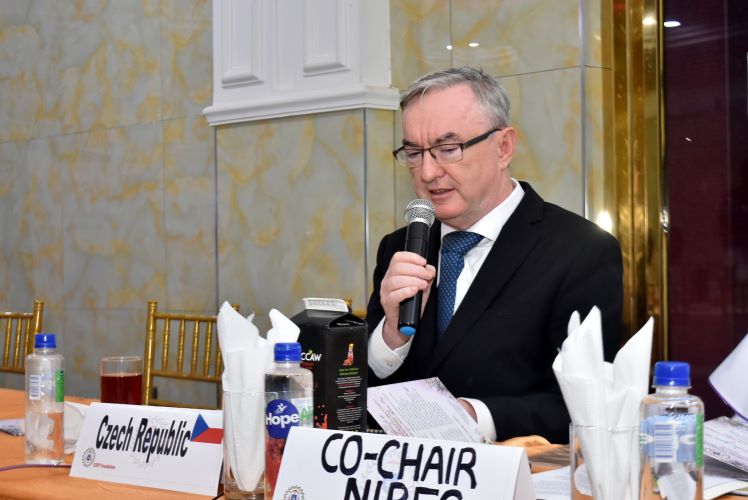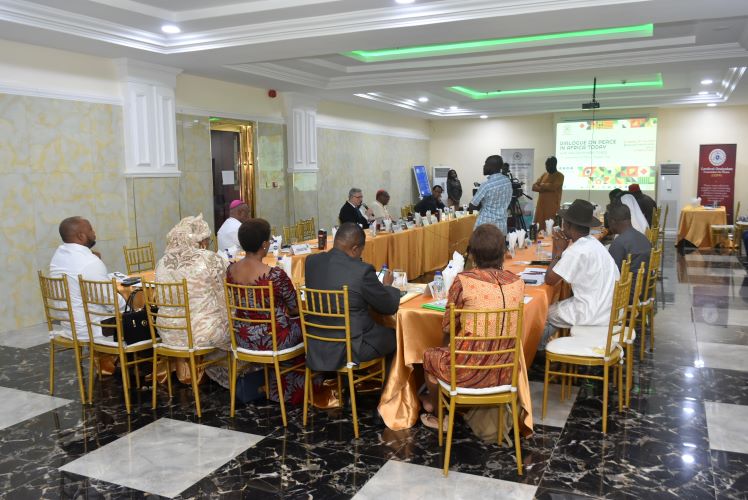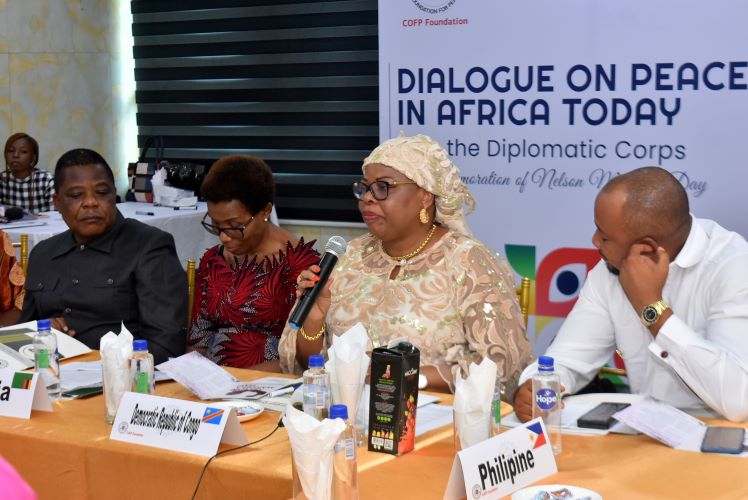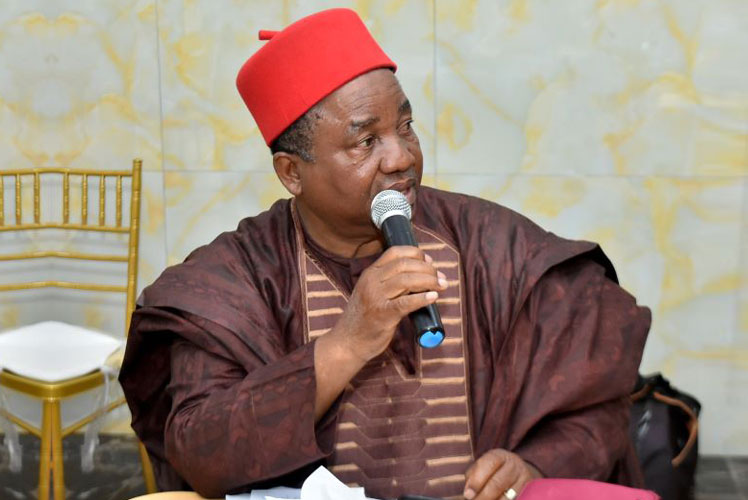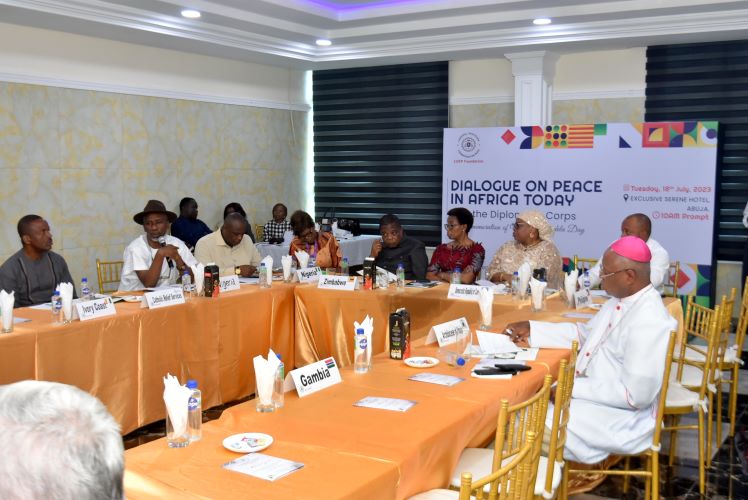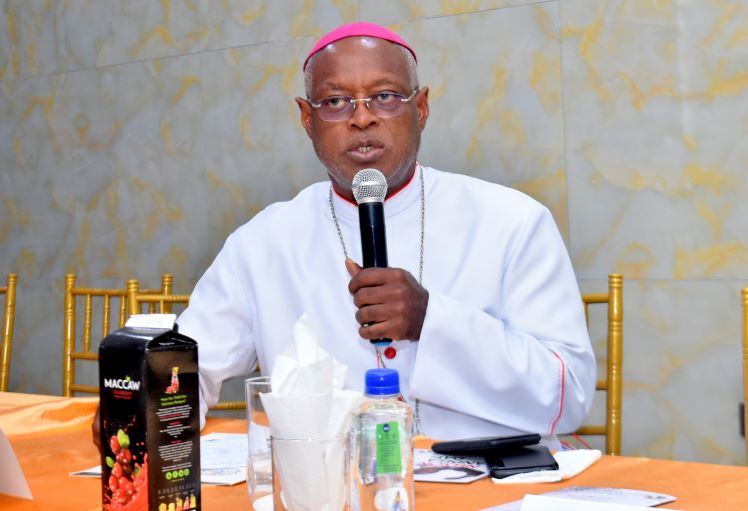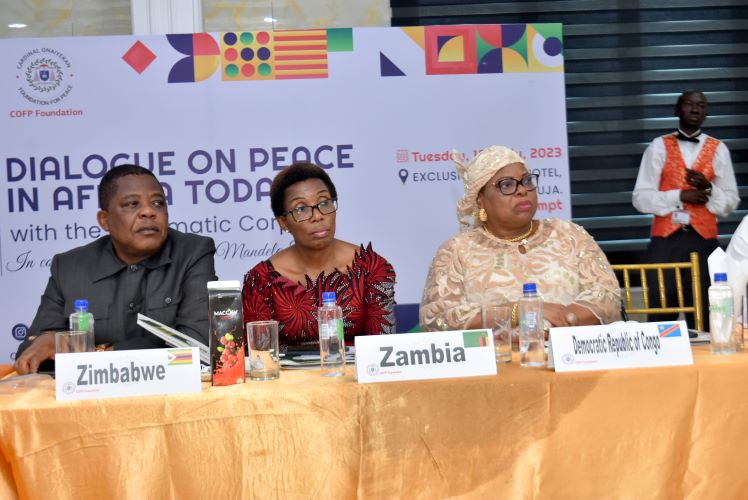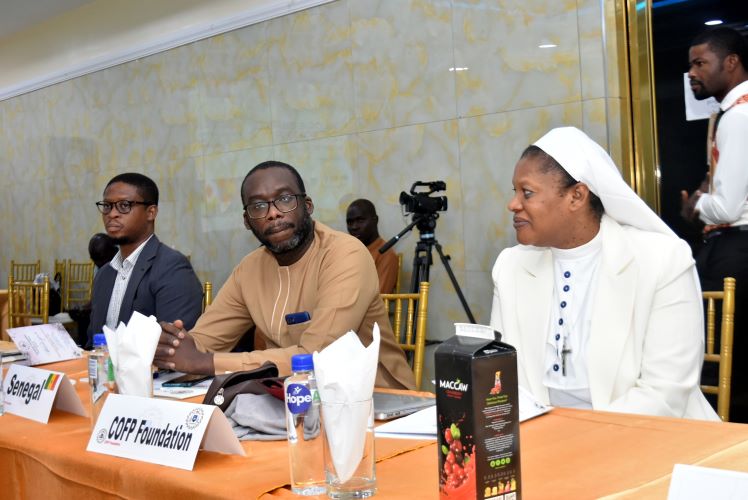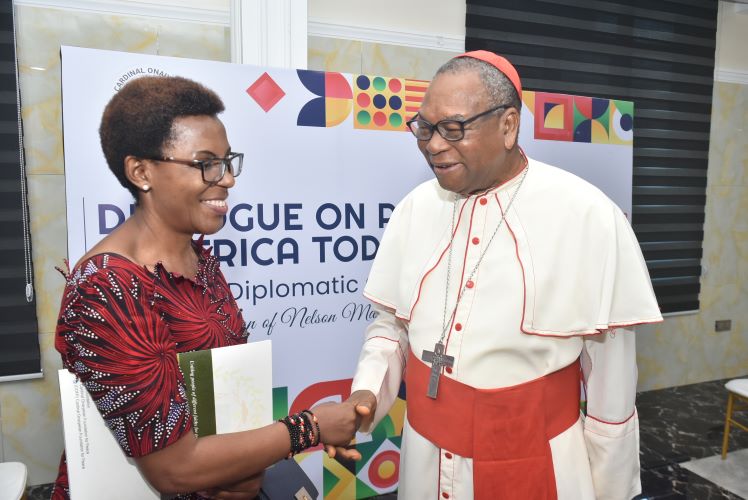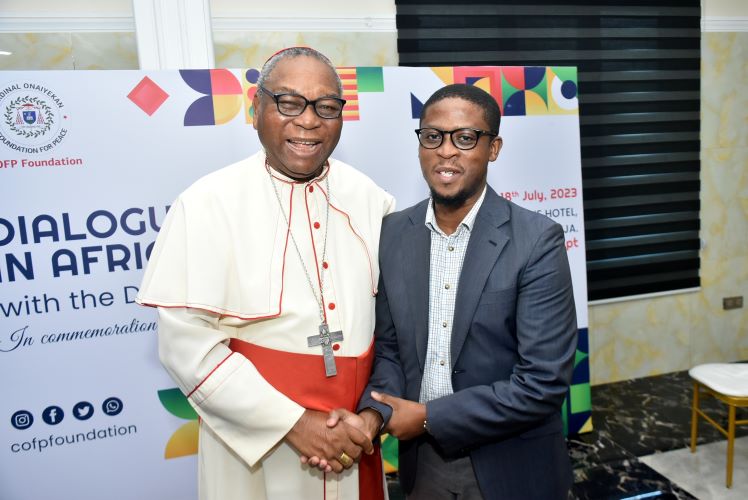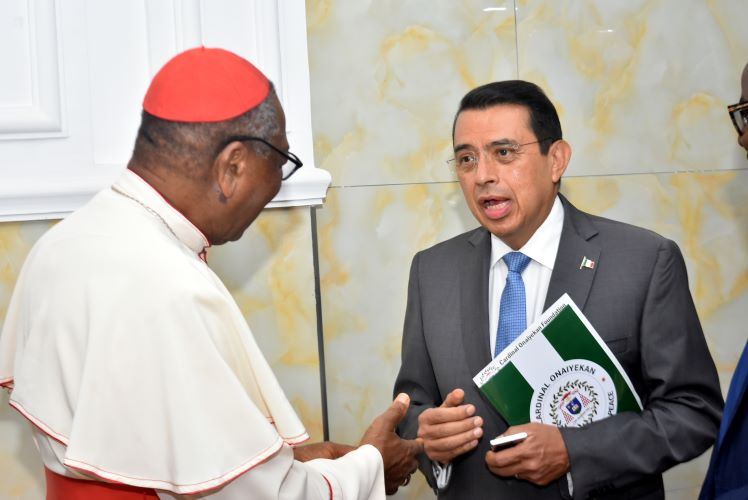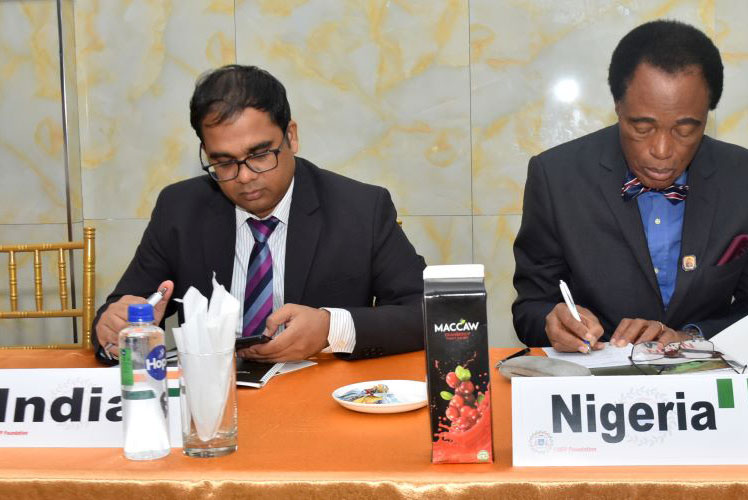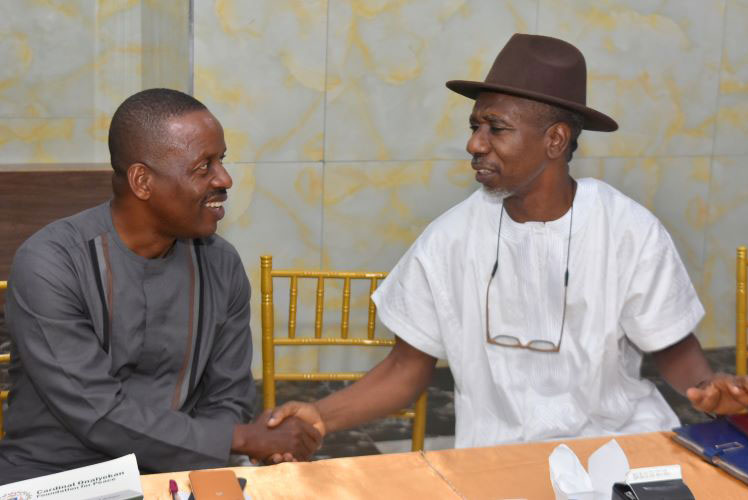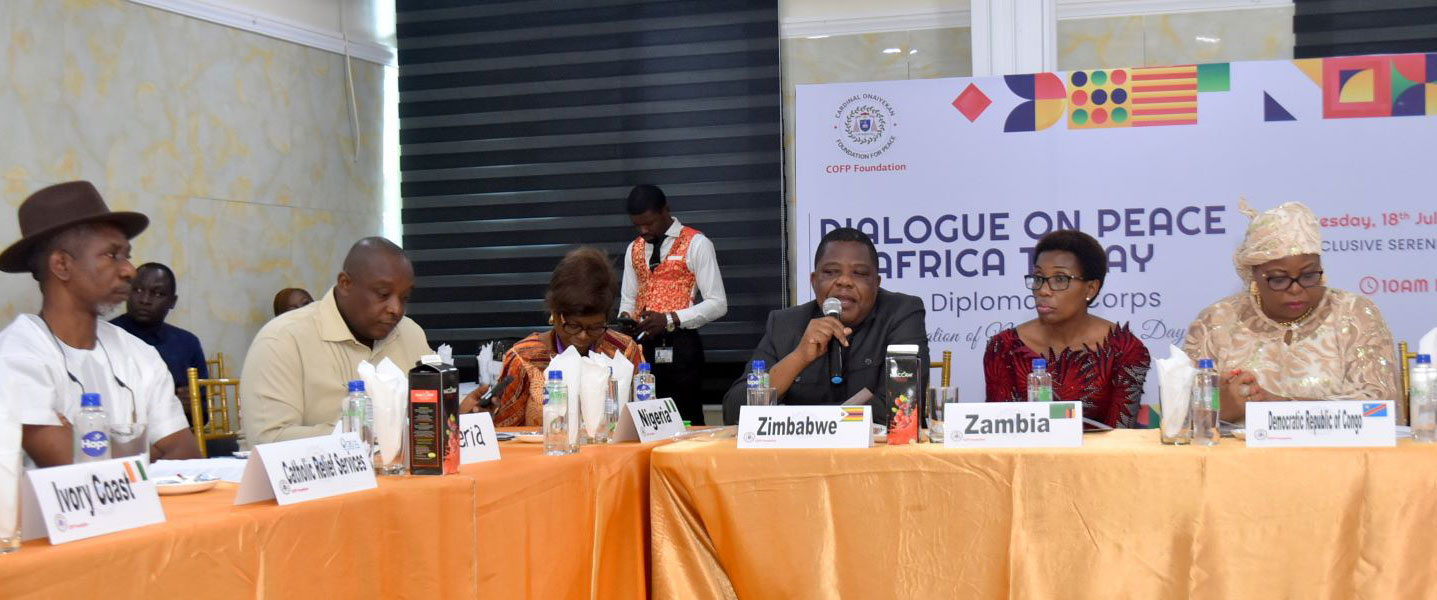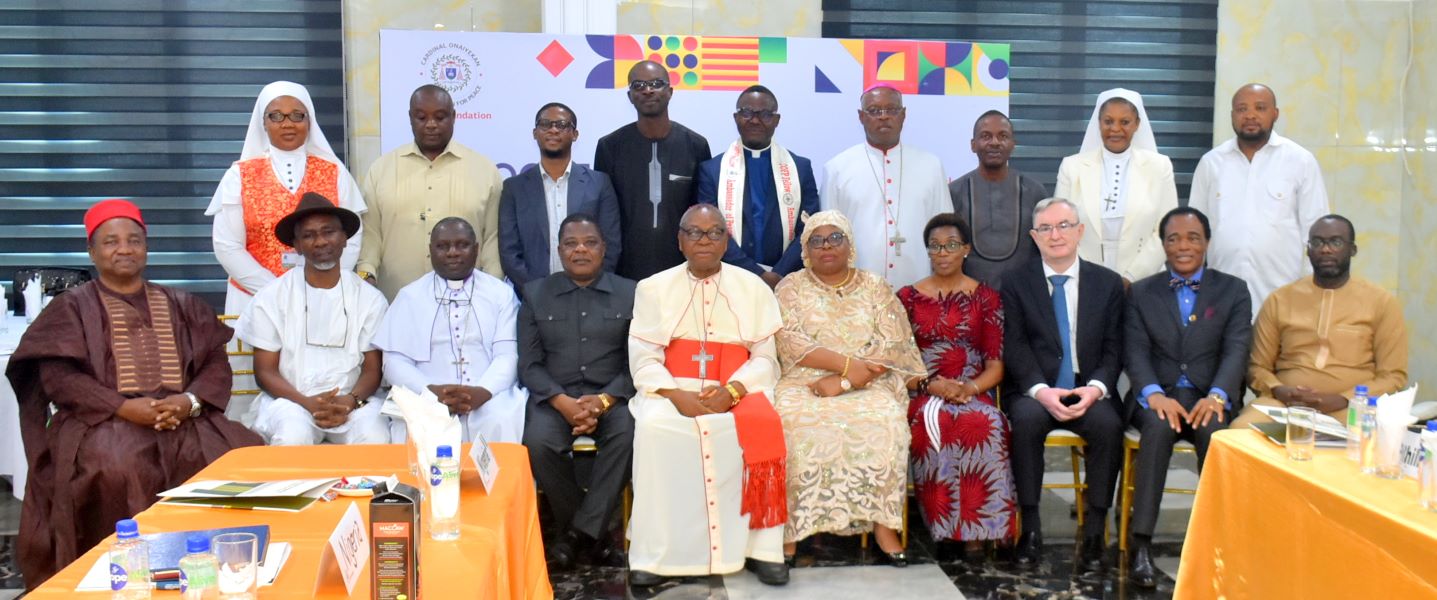To commemorate the life and legacy of the global Icon, Nelson Rolihlahla Mandela, the Cardinal Onaiyekan Foundation for Peace (COFP) organized a dialogue discussion with the diplomatic communities in Nigeria. The workshop was tagged “Dialogue on Peace in Africa Today” with the Diplomatic Corps” at the Exclusive Serene Hotel, Wuye Abuja, on the 18th day of July 2023. It is worthy of note that this very day marks his birthday and was declared by the UN General Assembly as Nelson Mandela International Day!
Among our esteemed guests were ambassadors and diplomats representating their countries and organizations namely; the Democratic Republic of Congo, Federal Republic of Nigeria, Zambia, South Africa, Senegal, Zimbabwe, Mexico, India, Czech Republic, Malaysia, Catholic Relief Services (CRS), Nigeria Interreligious Council (NIREC), Catholic Archdiocese of Abuja, Pan African Institute for Global Affairs and Strategy (PAIGAS) and the National Assembly of Nigeria (NASS).
Sister Agatha Chikelue, the Executive Director of the Cardinal Onaiyekan Foundation for Peace in her remarks expressed concern over increasing violent conflicts in Africa and their effect on the citizens. She resounded that the day wasn’t just a mere celebration but a call to action to embrace the values that Nelson Mandela stood for, committing to the pursuit of peace, justice, equality, and freedom for all people, irrespective of their backgrounds. Following the Director’s speech was a keynote address by His Eminence- John Cardinal Onaiyekan, where he stated that the fundamental purpose for which the event was put together was to create a free informal forum for the diplomatic community in Abuja to engage in a conversation about peace in Africa. He went on to affirm that despite all the chaos and negative appearances, peace in Africa is possible and is undoubtedly attainable even in our lifetime.
Panel Discussion
The keynote address opens up the floor for panel discussions on the topic of the day. In the two insightful panel sessions anchored by Rev. Fr. Boniface Nebo, He raised questions on the current state of peace and development in the various countries represented at the event.
In response to South Africa’s increasing issues of inequality, unemployment, poverty, and failure in leadership, the representative of the South African High Commissioner to Nigeria, in the person of Lesoli Makhele, said that a country is only able to proffer solutions to its challenges when it, first of all, acknowledges them. As such, South Africa must recognize its challenges, particularly the challenge of high-level youth unemployment. Hence, he suggested that different investors should be invited into the country during the annual international investment conference, and those investors should focus on creating more jobs for the youth.
Regarding the role of accountable and inclusive governance in fostering peace in Nigeria and Africa, Ambassador Martin Uhomobi, who doubles as a historian, stated that a biased government counteracts and contradicts the very essence that makes Nigeria great! Accountable leadership is always ready to be transparent and open to its dealings with the people and issues concerning them. As such, accountability is a significant recipe for enduring democracy and enduring survival of our country Nigeria! Aside leadership, the citizens also have a role in peacebuilding which is why we must all get involved as Nelson Mandela did in South Africa. All talk without action will produce no result he said.
Ambassador Pascaline of the Republic of Congo responded to the question on why a country as endowed as the Federal Republic of Congo lacks peace and why at least 5 million citizens seek refuge in other African countries. What could be responsible? And how is the government addressing this? By emphasizing that neighbouring African countries seeking to steal their natural resources/minerals are the primary reason for the wars and violence experienced in the Republic of Congo. We must collaboratively work towards making peace in Africa so that we do not exacerbate violence and wars among ourselves simply because of the greed to take over the natural resources of a neighbouring country. If we work hard to create an environment of peace in our various home countries, citizens will live happily among their people rather than seek refuge elsewhere.
Following the above comments, representatives from other countries, including Non-African countries, further made important contributions/remarks in the panel sessions to buttress how much we need peace in Africa and the world at large. For instance, the Representative of the Malaysian High Commissioner to Nigeria, Sharmini Devi Gopal, urged that we all must continue fighting for peace just as Nelson Mandela did. This global Icon once said, “It is easy to bring down and destroy; only the heroes are those who make peace and build.” The Ambassador of Zimbabwe to Nigeria, Maxwell Ranga, stressed that it is expedient that we continue to come up with forums like this to advocate for peace and engage in practical solutions to conflict in our various nations. His Eminence, John Cardinal Onaiyeka, in his remark, emphasized on the mandate of the African Union to Africa which is to crush all military coups. Although this is an important mandate, it is essential to note that rigged elections like those obtainable in some parts of Africa are worse than military coups he stated. It is therefore, necessary for the African Union to pay attention to these pressing issues among African countries he concluded.
Other members of the panel made the following suggestions that would enhance the effectiveness of peacebuilding efforts from diplomatic forums like this!
-
Strategies like the African peer-review mechanism, which would involve African leaders agreeing to send teams/delegates to each other’s countries to review current happenings, should be employed. The delegates can also operate this at the state level;
-
African leaders should place high importance on the idea of the New Partnership for African Development (NEPAD); this would enable our leaders to look up to each other for economic and social cooperation;
-
African leaders should encourage and support local talents in order to curb the brain drain to the developed world. This means that issues concerning salaries and economic development should be given greater attention. If this is done, citizens will stay back in their home countries, pulling resources and talents together to build peace in their nations.
-
Citizens should be allowed to participate in elections irrespective of tribe and tongue. Propagating the message of Nelson Mandela for a free nation means that there should be freedom to participate in free and fair elections. The lawmakers should revisit our leadership selection processes across the continent to ensure that Africa puts forward its best leaders on board.
Conclusion
His Eminence, Archbishop David Okoh, Co-Chair, NIREC in his concluding remarks had this to say; “It is apparent that Africa is tremendously blessed! However, we have a current challenge of irresponsible governance. If Africa will make significant progress, it must pay attention to the leaders it selects to govern its affairs” We must challenge the current status quo, which is not in our favour. Our collective responsibility is to build a peaceful Africa for all of us.
